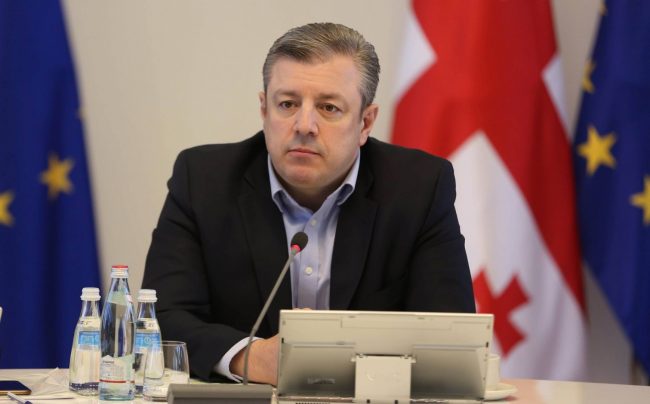
 Georgian Prime Minister Giorgi Kvirikashvili has said connections between the Orthodox Church and the education system should be strengthened. The comments come days after the head of the Church urged the government to consider the importance of a ‘spiritual upbringing’, in the wake of a fatal double stabbing outside a Tbilisi school.
Georgian Prime Minister Giorgi Kvirikashvili has said connections between the Orthodox Church and the education system should be strengthened. The comments come days after the head of the Church urged the government to consider the importance of a ‘spiritual upbringing’, in the wake of a fatal double stabbing outside a Tbilisi school.
Kvirikashvili made the comments on 11 December while speaking at the Theological Academy, at the opening of the new Dissertation Council.
He said the government had ‘carefully considered’ a speech by Patriarch Ilia II, the head of the Church, about the stabbings in Tbilisi as well as another one in Kutaisi, and claimed to fully share the spirit of the statement.
A 9 December statement from the Church called for ‘resolving the problem of teenagers who stand in the street unsupervised’.
[Read on OC Media: Arrests follow fatal school stabbing in Tbilisi]
It argued that to reduce violence among teenagers, film and television should be censored for violence and ‘insulting and obscene expressions’. It also advocated for a healthy lifestyle.
In his Sunday sermon on 10 December, the Patriarch said the government should consider the importance of a ‘spiritual upbringing’, and that ‘the history of religion should be taught, as well as issues of spirituality, so similar incidents can be avoided’. The Patriarch is widely considered to be one of the most influential people in the country.
According to Kvirikashvili, ‘the Church and the state, are of course, separate institutions, but when it comes to our worldview, it’s impossible, and no one should want to, break the union which has preserved our country’.
Kvirikashvili said connections between the educational system and the Orthodox Church already exist, and ‘strengthening this union is our main priority, with, of course, the right form’.
In response to the statements from both the Church and the Prime Minister, Education for All — Georgia, a coalition of six civil society groups working on education, issued a statement on 13 December criticising the initiative.
They said that while they recognise the historical role of the Church in the country’s development, ‘according to the existing legislation and the principles of secularism, schools should be free from the influence of religious and political organisations’.
To improve the education system and create a safer environment in schools, the coalition advocated instead for support in strengthening the teaching profession, advising politicians, the media, and older generations to be more tolerant.




 13 December 2017
13 December 2017


